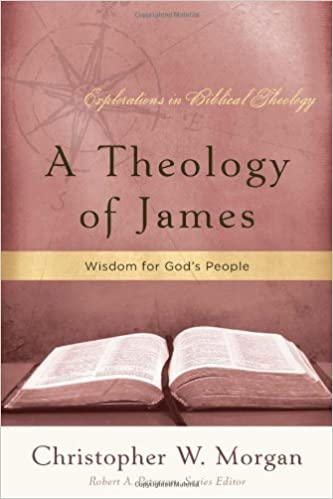A Brief Book Summary from Books At a Glance
by Mark Baker
About the Author
Christopher W. Morgan (Ph.D., Mid-America Baptist Theological Seminary) is Professor of Theology and an Associate Dean at California Baptist University in Riverside, California. He is also author of James: Wisdom for the Community.
Overview
This book seeks to bridge the gap between exegesis of particular passages in James and a systematic overview of the book. “It seeks to demonstrate that while particular passages have important messages, biblical books also have larger, overarching messages that merit attention” (xvi). Specifically, James’s theology appears to be rooted in the Old Testament, Judaism, and the teachings of Jesus (xvii).
Table of Contents
1 James in Context
2 Influences on James’s Thought
3 James’s Pastoral Burden: Wisdom for Consistency in the Community
4 Wisdom
5 Consistency
6 Suffering
7 The Poor
8 Words
9 God’s Word and Law
10 James and Paul
11 A Sketch of James’s Theology
12 Theology at Work
13 James for the Twenty-first-Century Church
Summary
Chapters 1-2: James in Context and Influences on James’s Thought
While there are other theories, James the brother of Jesus most likely wrote the epistle of James. James uses many “Semitisms,” or phrases that have been influenced by the Hebrew language. James is in the form of a letter, and the sub-genre is paraenesis, or exhortation, which is often characterized by numerous moral sayings strung together by common themes. The Hebrew Bible influenced more than just the language of the letter: James 2:11 contains an allusion to the ten commandments, even listing them in the same order as the Septuagint. Deuteronomy 10:12-22 “serves as a helpful backdrop to understanding James” (26). There are several common topics between this passage and James: “God’s election of his people, impartiality, justice for orphans and widows, provision of food and clothing to strangers, love for God leading to loving others, and God shaping community ethics” (26). Strikingly, there are also similarities between every major section of the Sermon on the Mount and the letter of James. . . .
[To continue reading this summary, please see below....]The remainder of this article is premium content. Become a member to continue reading.
Already have an account? Sign In
Buy the books

A THEOLOGY OF JAMES: WISDOM FOR GOD’S PEOPLE, by Christopher W. Morgan